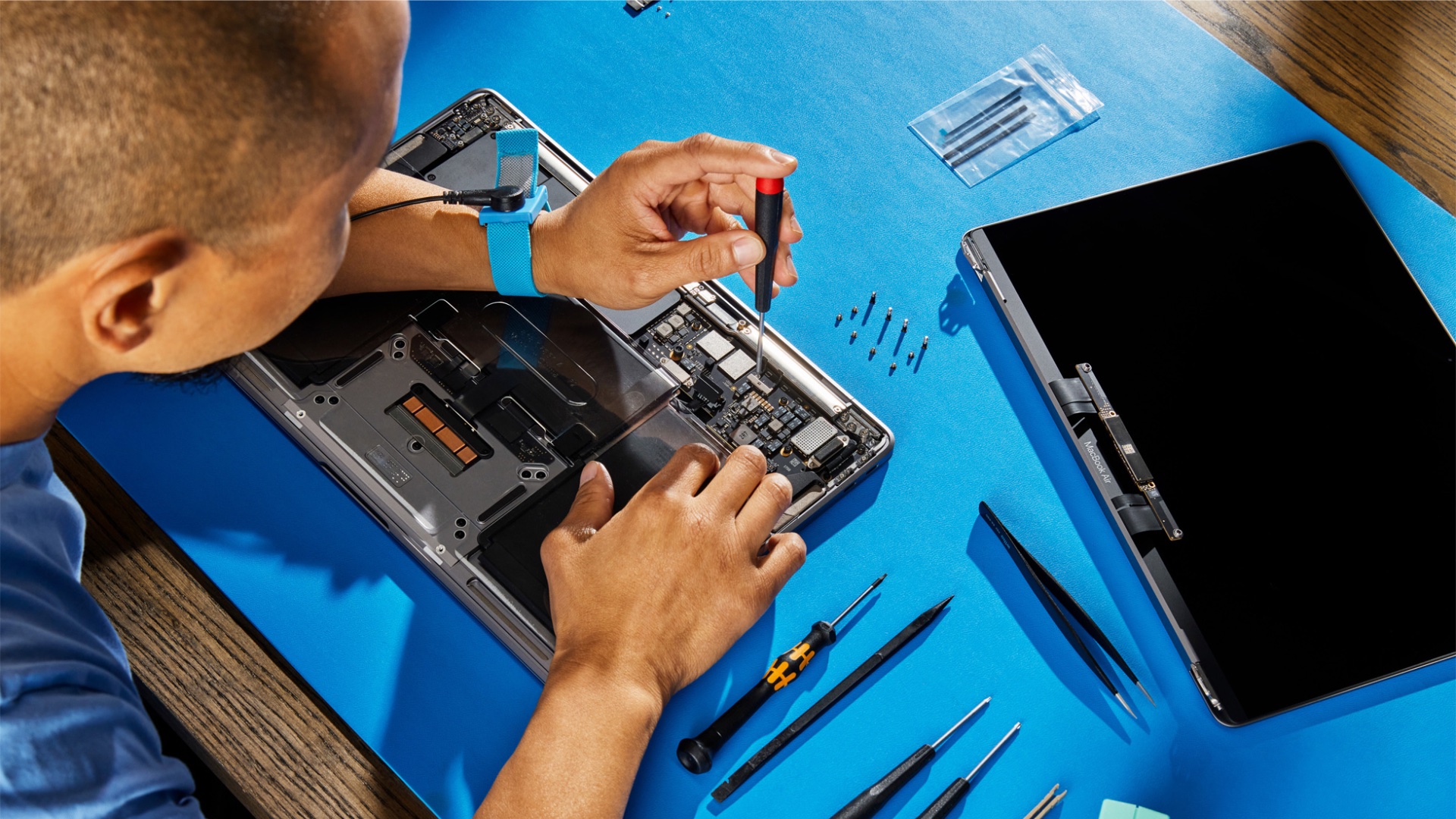Is your M-series MacBook running out of space? This repair shop says it can upgrade it to a 2TB SSD, for a price
It ain't cheap, but it's better than buying a new laptop.

Apple's latest M3 MacBook Airs and M3 MacBook Pros might be the best MacBooks ever made, but they all suffer from an issue that has befallen its laptops for years. While they might be fast and quiet, and they have battery life that never seems to end, they all have an issue that Apple seems unwilling to fix — they can't be upgraded.
There was once a time when buying a laptop meant being able to add more RAM and a bigger SSD later in its life, as your needs begin to outgrow its abilities. But that's no longer the case and buyers are stuck with whatever they configured at the time of purchase. Given the costs associated with upgrading both the RAM and storage on Apple's portable Macs, that can be problematic. As a result, people find themselves running out of storage space further down the line with little recourse other than to buy an external hard drive or upgrade to a new Mac altogether. But there might be help at hand, so long as you happen to be in Canada and have reasonably deep pockets.
Now, one Vancouver repair shop says that not only has it figured out how to replace the SSD on Apple's M-series laptops but also that it's confident enough to offer the service to customers. The result? You can hand over your 256GB MacBook and then take it back with a shiny new 2TB SSD installed. The swap-out isn't cheap, though — the upgrade costs 550 of your Canadian dollars per laptop.
How much?
Yes, that's a lot of money and it works out to a little more than $400 when converted to USD, but in a world where the options are limited, it's better than nothing.
Tom's Guide was the first to spot the service being provided by the Vancouver Mac Service Centre, and while the original blog post detailing the work the company will do mentions the M1 machines, we're told that M2 and M3 laptops should be good to go as well although there are some differences in the parts that are needed.
"The overall process is identical, but the parts used are different," Sam Freeman, the owner of VancouverMac.ca told Tom's Guide. "The M1 Pro, M2, and M3 series use smaller chips with more dense connections, making it a bit harder, but it is very doable. I cannot confirm if parts are currently available for the M3 Macs since they are so new, but they will surely be released soon."
The service center says that upgrading the storage is "relatively simple," adding that "the main logic board must be removed, and the NAND chips are removed and replaced with the replacement parts." The process can be seen in the video above and while it may be a simple process for professionals, this is definitely not something you'll want to try at home. Getting the new SSDs physically installed is only half of the job, because getting everything back up and running afterwards still requires plenty of work.
Master your iPhone in minutes
iMore offers spot-on advice and guidance from our team of experts, with decades of Apple device experience to lean on. Learn more with iMore!
"After the chips are replaced, Apple Configurator is run on the machine through another Mac via USB-C to reprogram the SSD configuration, and correctly link the CPU to the new storage drive, reassigning the encryption parameters," the service center explains.
It goes without saying that this absolutely voids your warranty with Apple, but if you're in dire need of more storage and don't want to splash the cash on a shiny new Mac, this option might be one to consider.
More from iMore

Oliver Haslam has written about Apple and the wider technology business for more than a decade with bylines on How-To Geek, PC Mag, iDownloadBlog, and many more. He has also been published in print for Macworld, including cover stories. At iMore, Oliver is involved in daily news coverage and, not being short of opinions, has been known to 'explain' those thoughts in more detail, too. Having grown up using PCs and spending far too much money on graphics card and flashy RAM, Oliver switched to the Mac with a G5 iMac and hasn't looked back. Since then he's seen the growth of the smartphone world, backed by iPhone, and new product categories come and go. Current expertise includes iOS, macOS, streaming services, and pretty much anything that has a battery or plugs into a wall. Oliver also covers mobile gaming for iMore, with Apple Arcade a particular focus. He's been gaming since the Atari 2600 days and still struggles to comprehend the fact he can play console quality titles on his pocket computer.
